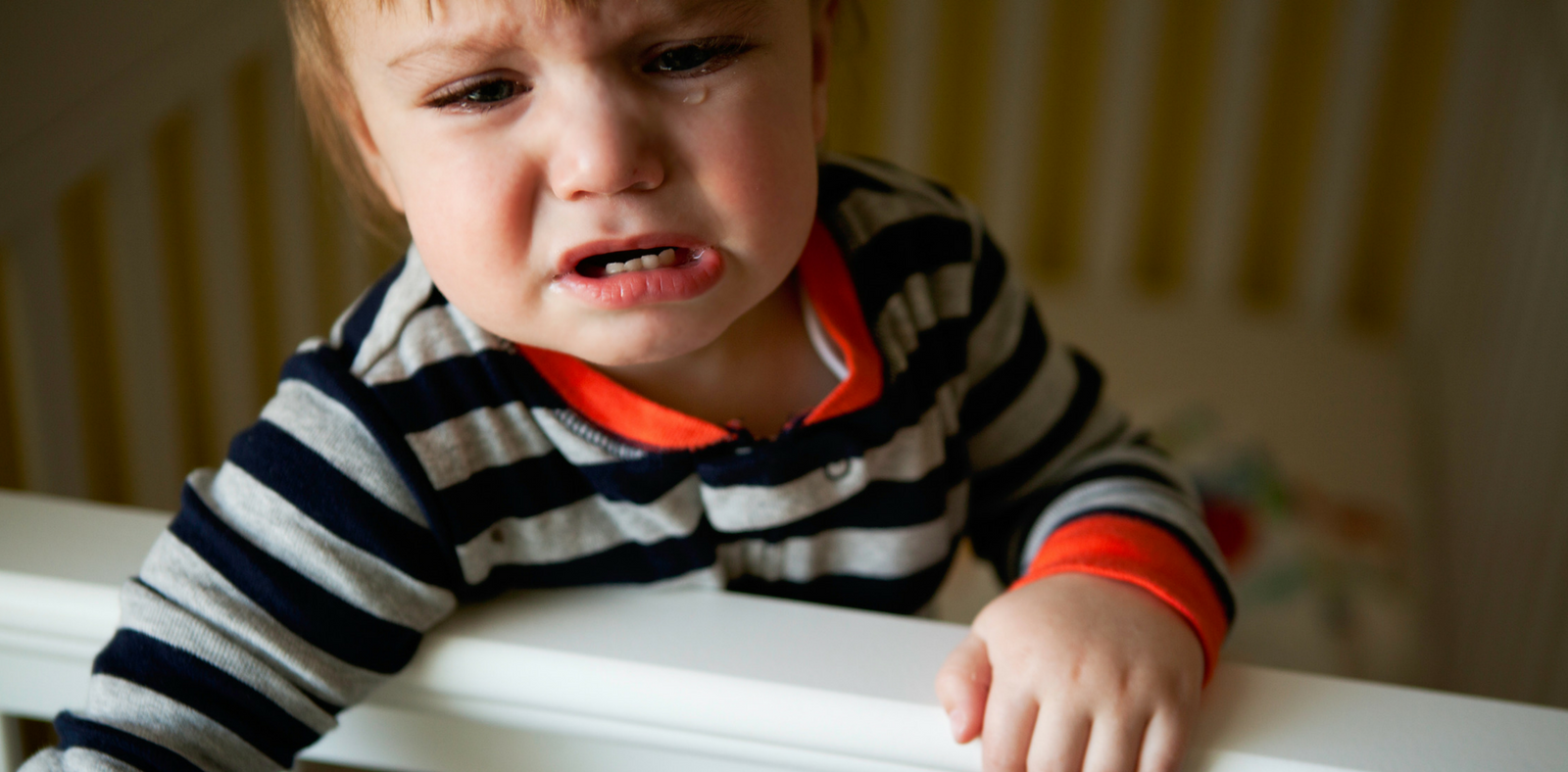Has your once great sleeper suddenly started screaming at bedtime, waking up at night, or fighting naps? Your baby or child may be going through a sleep regression. Sleep regressions are common and normal. All babies and children go through them. The key to decoding sleep regressions is:
- Uncovering what is causing the sleep regression- Is it illness or pain, a developmental change, or a mismatch in expectations?
- Addressing the need- Does your baby or child need medical care, a change in daytime parenting, or an adjustment to her schedule?
- Preventing new problems- Is how you are responding to your baby or child creating new sleep habits or associations that you can’t sustain long-term?
- Implementing a back-to-bed plan- Do you have a plan to get back to your usual sleep expectations?
In this blog I will cover some of the top causes of sleep regressions for babies, toddlers, and young children. Links to more detailed blog posts on common regressions by age and how to address them will be added to this post over time. So more to come!
#1 Illness
If your child has a sudden change in change in sleep behavior, especially if it is coupled with pain-like crying, moaning, or clinginess, the first thing you should check for is illness. Obviously fever is a sure sign of illness, but not all illness comes with fever. You might need to be a detective!
Seasonal allergies can cause difficulty breathing which can lead to confusional arousals when your baby or child is half asleep, crying, but difficult to settle. They can also lead to snoring and sleep apnea, which should definitely be addressed by a medical professional. Food allergies, especially milk protein allergy, can cause pain when sleeping. Eczema is also a common cause of sleep regressions.
Read more about sleep regressions caused by illness and allergies here.
#3 Physical developments
Learning to roll, sit, stand, crawl, and walk can all cause temporary sleep regressions including taking longer to fall asleep and waking more at night. Some research suggests that when your baby’s sleep is impacted (before, during, or after mastering the skill) and for how long, might be related to whether your baby mastered the skill early or late.
#4 Cognitive bursts
Each mental leap a baby and young child makes toward greater awareness and independence often comes with a sense of insecurity. This unease can lead to separation anxiety, more difficulty separating for sleep, and the need for more reassurance at night.
#5 Travel
Newborns and young babies can sleep just about anywhere. But sleeping in a new and foreign space can be difficult for babies once they are old enough to be aware, and potentially wary, of their surroundings. While some babies and children adjust well and can stick to the normal sleep expectations, others need more support falling asleep when traveling. This can lead to difficulty settling back into the normal routine once you get home. [Learn how to prevent travel problems.]
#6 Changes in sleep needs
Babies, toddlers, and big kids’ sleep needs change often and drastically over the first 5 years of life. If you don’t adapt your baby or child’s sleep schedule to accommodate his changing needs, you may see difficulty falling asleep or night wakings. What looks like a sleep regression, may actually be a mismatch in sleep expectations that can be resolved when you adjust his schedule. [Learn how to get your baby on a schedule.]
#7 Overtiredness
Having chronic sleep debt raises your baby or child’s adrenaline and cortisol. This makes it difficult to fall asleep and stay asleep. These sleep difficulties can look a lot like a sleep regression, but without allowing your baby or child to catch up on sleep, things just get worse, not better.
#8 Potty Training
Potty training can cause sleep regressions in two ways. First, potty training makes your toddler more aware of the sensation of needing to use the bathroom. This awareness alone can cause more night wakings. Second, parents make getting to the bathroom before an accident happens a priority. Your toddler learns quickly that if he calls for you, you’ll come running, day or night! This means the increase in waking can turn into more drama.
#9 Switching to a Big Kid Bed
A big kid bed comes with the freedom of mobility and your toddler or preschooler doesn’t have the self-control to stay put. He swings his legs over the side and is running down the hall. Pushing limits to see how much he can get away with isn’t manipulative, it’s his job! Without the feelings of safety that comes with the confinement of the crib sides, he may also feel uneasy in his new sleep space which leads to more bedtime stalling and night wakings. [Learn tips for switching to a big kid bed.]
#10 Family stress or change
Any big life changes such as starting daycare, the birth of a new sibling, parents’ divorce, or moving homes can result in changes in sleep. That’s not to say you need to protect your baby or child from all change. Change is part of life and short term stress, in a loving home, can help, rather than hinder, resiliency.
What about teething?
Teething takes the blame for a lot of sleep problems! The research on how much teething affects sleep is conflicting. Most sleep experts agree that while many parents claim sleep problems started when their baby started teething, the sleep problem likely existed before teething began. Teething just brought parents’ attention to it. But I’m listing it here because I hear it so often!
Wake Up and Smell the Coffee (You’ll need it!)
Many parents deny that their baby is going through a sleep regression for weeks, until it creates new sleep habits that are tough to undo. The sooner you recognize sleep regressions and their cause, the sooner you can make sure it doesn’t turn into a problem.
Here is my philosophy around changes in sleep:
- 1st night is a FLUKE: Everyone has a bad night now and then, even babies and kids. Don’t stress it!
- 2nd night is a coincidence: Now is the time to watch out for causes of a sleep regression.
- 3rd night makes a pattern: Now you need to address the cause so you can get back on track with a back–to-bed plan.
Getting Back-to-Bed with Empathy, Respect and Resolve
Once the cause is addressed, true sleep regressions usually don’t last very long. When a sleep regression lasts weeks or months, it’s likely not a sleep regression anymore, but a new sleep association that was caused by how you responded initially. The key to getting through a sleep regression without causing long-term sleep problems is to address and attend to the cause quickly and then get back to your usual sleep expectations or sleep rules. The longer and more inconsistently you change up how you respond to your baby or child at night, the more likely you will create a new sleep association.
Help for Tired Families Starts Here
Addressing a sleep regression can be exhausting. If you are struggling, I can help you with creating a plan and sticking with it. The Full Consult with Follow-Up provides the most support but the Ask the Sleep Geek consult can be a good choice for you if you just need some help with creating a plan. Both packages can be customized to meet your family’s individual needs.


